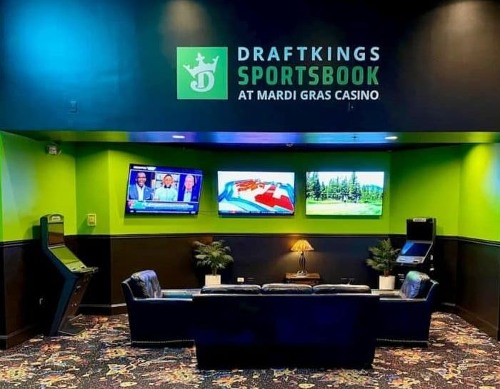Sports Betting
Tax Foundation Releases Study to Explain Sports Betting Tax Rates

The non-profit U.S. Tax Foundation published a comprehensive report, detailing the various sports betting tax rates. A total of 38 states and Washington, D.C. offer some form of legalized sports wagering, as of September 2024. Three states have the highest tax rate at 51%: New York, New Hampshire, and Rhode Island.
Tax Foundation report compares sports betting tax rates, licensing fees among regulated jurisdictions
However, only one sportsbook is legal in Rhode Island. According to CBS Sports’ betting experts John Brennan and Josh Nagel, the Ocean State’s monopoly status means “significant savings in marketing and advertising costs” because there is no legal competitor to steal market share.
Meanwhile, New York is the largest state in the U.S. to offer a free-market sports betting system. Bally’s, BetMGM, BetRivers, Caesars, DraftKings, Fanatics, FanDuel, and Resorts have all launched at some point since the first bets were accepted at retail casinos in 2018 and online in 2022.
Pennsylvania is the second-largest competitive-marketplace state. The Keystone State has the next-highest tax rate at 36%. Until 2018, Nevada was the only state with full legal sports betting.
Additionally, Iowa has the lowest tax rate at 6.75%. A lower figure entices more operators to the state. The other states with a tax rate of under 10% are Michigan (8.4%) and Indiana (9.5%). Six other states currently set the number at exactly 10%.
Earlier this year, Illinois changed its tax rate from a flat 15% to a scaled rate that charges as high as 40% for the highest-revenue operators. Ohio also doubled its tax rate from 10% to 20% less than a year after the sportsbooks first launched in early 2023.
New York leads initial licensing fee list at $25 million
Arkansas has sports wagering tax rates of 13% or 20% depending on revenue. The Natural State had been the only U.S. jurisdiction with multiple tariffs.
Furthermore, the Tax Foundation also added that potential sportsbook operators need to consider licensing fees. Although Massachusetts regulators impose a mid-level tax rate of 15%, the Bay State charges an exorbitant $5 million initial licensing fee along with a $5 million renewal fee every five years.
New York tops all states with a $25 million initial licensing fee. Pennsylvania charges a $10 million licensing fee and a $250,000 renewal rate every five years. Plus, New Jersey requires all sportsbook operators to partner with retail casinos or horse racing tracks to obtain a license.
Ohio regulators have sportsbooks team up with professional sports franchises in the state. Of course, not every state that has legalized sports betting permits online wagering. States include Delaware, Mississippi, North Dakota, South Dakota, Washington, and Wisconsin.
Regulated online sports betting is available in 27 states and Washington, D.C.











